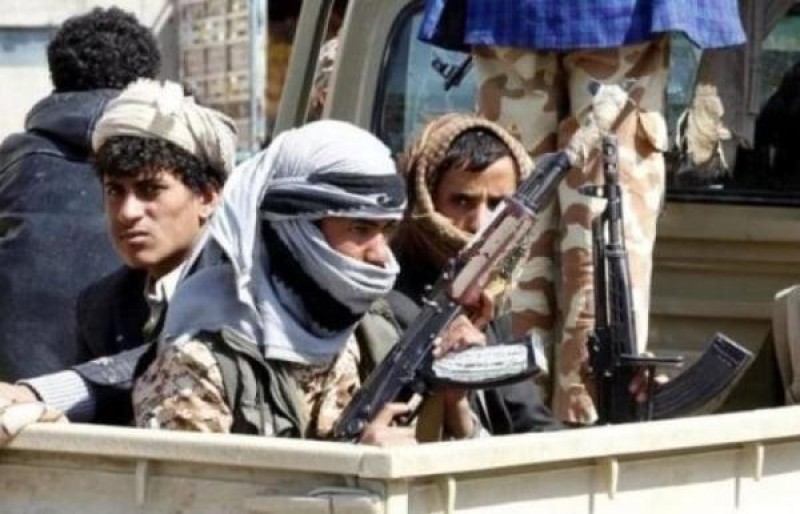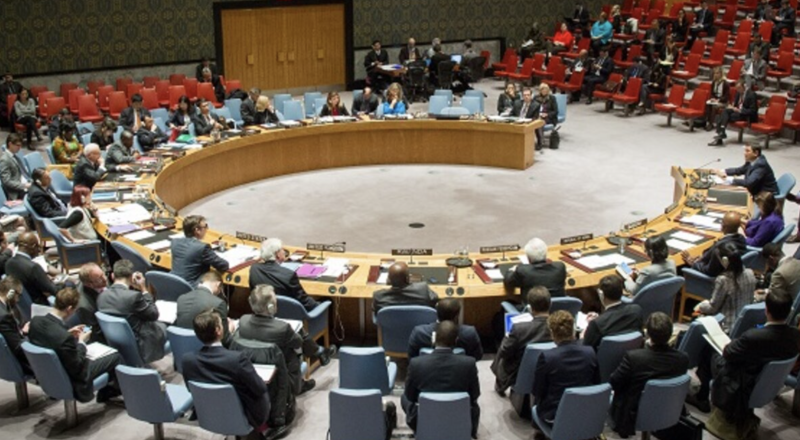Yemen's rebel alliance unravels amid capital street clashes


Snipers took over rooftops in residential areas, tanks deployed and militiamen set up checkpoints Sunday across the Yemeni capital, where fighting forced families to hunker down indoors in anticipation of more violence.
Five days of bombings and heavy gunfire have underscored the unraveling of the already fragile alliance between Yemen's strongman and former president, Ali Abdullah Saleh, and the Shiite rebels known as Houthis. The two sides joined ranks three years ago and swept across the capital, Sanaa, forcing the country's internationally recognized president to flee the country and seek military intervention led by Saudi Arabia.
After months of political and military stalemate, the street battles between Saleh's forces and the Houthi militiamen have marked a turning point in the conflict. The two sides had been enemies before the six-year-war that began in 2004 when Saleh was a president. Their alliance, in the eyes of many Yemenis, was doomed to fail given their stark differences.
The Iran-backed rebels perceive themselves as a religious awakening movement, while Saleh is a pragmatic politician, shifting political alliances, buying tribal loyalties and exploiting Yemen's power fault lines throughout his three-decades in power before he was ousted after the country's Arab Spring uprising in 2011.
Over the past 48 hours, in a series of surprise announcements, all of Yemen's political players spoke about turning a new page and unifying against the Houthis -- a new alliance that appeared to have been in the making for some time as the Shiite rebels have accused Saleh of working against them.
The Houthis, who descended from their northern enclave and seized Yemen's capital in 2014 with the help of Saleh's forces, are now becoming isolated in the face of popular anger.
Pictures of angry Yemenis tearing down posters of the Houthi leader, Abdul-Malik a-Houthi, in Sanaa flooded social media as street fighting there appeared to split the capital in two, with northern areas under Houthi control and southern ones under Saleh's fighters.
Clashes between fighters loyal to Saleh and the Houthis first erupted last week when Saleh accused the rebels of storming his giant mosque in Sanaa and attacking his nephew, the powerful commander of the special forces, Tarek Saleh.
Both sides have set up checkpoints, placed snipers on rooftops and sealed off entrances to the city. Bombings and sporadic gunfire rocked the southern part of Sanaa on Sunday, where Houthi militants stormed Saleh's Yemen Today TV network, beat up its director, and held over 40 journalists and crew members inside the building, Yemen's Press Syndicate said.
Many state institutions -- including the airport, state TV headquarters and the official news agency -- remained under the control of the Houthis, despite earlier reports that Saleh's forces had taken them over.
A southern Sanaa district that houses the residential compound of Saleh and his family was surrounded during the intense clashes.
The fighting also spread to northern areas. In Amran, armed tribesmen tried to cut the road between the provinces of Saada, a Houthi stronghold, and Jawf, sparking clashes in which scores of tribesmen were killed and wounded, witnesses said. In Mehwat, a province in northern Yemen, sporadic fighting also broke out between Saleh's supporters and the Houthis, while heavy fighting rocked the western district of Gidr in Sanaa province, where tribesmen took over military camps briefly before surrendering them to the Houthis.
Medical officials in Sanaa said nearly 75 people from both sides were killed and wounded in clashes there. The officials, who spoke on condition of anonymity because they were not authorized to brief media, did not provide a breakdown of the casualties.
Meanwhile, Yemen's President Abed Rabbo Mansour Hadi, who is in Saudi Arabia in self-imposed exile, appeared to extend an offer of reconciliation to his predecessor, Saleh. In a statement from Riyadh, Hadi said his side would support "any party confronting Houthi terrorist gangs."
The offer followed a televised statement Saturday by Saleh in which he announced that he and his party, the People's General Congress, were open to dialogue and willing to turn a "new page" in dealings with the Saudi-led coalition.
Apparently confirming his break with the Houthis and aligning himself with Saudi Arabia, Saleh told Kuwait's al-Rai daily that "the era of the militias is over and there is no coexistence after today between a state and a quasi-state."
"Our natural orbit as Yemenis is the Gulf orbit," he added, referring to Saudi Arabia and the other Gulf Arab states. "Whatever differences we have with the Gulf countries, we will co-operate and agree."
If Saleh and his fighters switch sides and join the Saudi-led coalition and Hadi's loyalists, the Houthis would become completely isolated.
Relations between the Houthis and Saleh's forces deteriorated over the past weeks amid accusations from the rebels that Saleh was opening a back channel with the coalition through the United Arab Emirates, a coalition member, to turn against the Houthis.
Deif Allah al-Shami, a top Houthi politician, told The Associated Press that Saleh -- by his statements and actions on the ground -- had de facto joined the Saudi-led coalition. However, he said this spelled the end of Saleh, insisting the Houthis remain firmly in control.
"Saleh is over, this card is over," he said. "He is now part of the coalition and the aggression."
Saleh's family members, including his son Ahmed, who was once groomed to succeed his father and who led the powerful Republican Guards, have been in self-exile in the UAE since Saleh stepped down in the aftermath of the mass uprising against his rule during the 2011 Arab Spring.
Saleh and the Houthis are have always been unlikely allies. When Saleh was president he repeatedly went to war with the rebels in their northern heartland. In recent weeks, the Houthis have accused Saleh of trying to pull his forces from the front lines, while his supporters have complained about the Houthis monopolizing power.
Last summer, Saleh also appeared to work against the Houthis as he welcomed a United Nations initiative to hand the vital Red Sea port city of Hodeida to a third neutral party in order to ease the blockade and open the port to free access of humanitarian aid. The Houthis shot down the proposal and have refused to meet with the U.N. envoy to Yemen.
The cracks deepened in August after street fighting ended with the killing of one of Saleh's close associates, Khaled al-Radhi. Since then, Saleh's party members have been vowing to take revenge.AP

Aden — Southern Transitional Council (STC) President Aidarous Al-Zubaidi called on national forces in northern Yemen to unify their ranks and…

Sana’a — Security units affiliated with the Houthi movement carried out a raid targeting one of the most prominent military figures fro…

New York — The United Nations Security Council (UNSC) is set to convene on Wednesday at 10:00 a.m. New York time (6:00 p.m. Yemen time) for i…